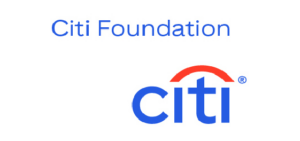Strengthening Financial Health for Climate Resilience
Climate hazards have massive financial impacts on households, especially ones that are already struggling. What do they need to be financially resilient in the face of a changing climate?
-
Program:
-
Category:

The Financial Impact of Extreme Weather
The financial costs of extreme weather and climate hazards are staggering, and the impacts are widespread. In addition to more headline-grabbing, billion-dollar climate events, the frequency of smaller-scale events has accelerated.1 On top of everything, our warming climate is creating persistent and chronic stressors, impacting families and communities alike.
Moreover, the costs are not distributed evenly. Households living on low incomes and communities of color are more likely to live in areas susceptible to climate hazards and to have a harder time rebounding from them.2, 3, 4 They’re less likely to have immediate funds on hand in case of emergencies, to be able to cover costs to mitigate the effects of a disaster, to have sufficient insurance to cover losses, and to have access to affordable credit to rebuild.5, 6, 7
At the same time, climate events can compromise our financial health by affecting our earning power, utility costs, access to credit, and the affordability of insurance.8, 9, 10 Our ability to prepare now for emergencies impacts our long-term ability to financially recover from them.
“Without significant intervention, climate hazards are likely to cause compounding financial burdens for vulnerable households with fewer resources and limited ability to prepare for and recover from shocks.”11
U.S. Department of the Treasury
4 Pillars for Household Climate and Financial Resilience
To foster climate resilience, it is critical to strengthen financial resilience. In this brief, we explore what households need financially to be climate resilient. In particular, we focus on financially vulnerable households, which are disproportionately composed of people of color and those with low incomes.12 To understand the barriers and risks that vulnerable families face – and identify the solutions that could support them – we draw on a framework commonly utilized in emergency management. This framework conceptualizes the disaster lifecycle into four phases: mitigation (and adaptation), preparation, response, and recovery.13 These phases comprise four key pillars for building household climate and financial resilience.

Mitigation and Adaptation
Families need clear communication and guidance to help them evaluate risks, prioritize appropriately, and take action. Additionally, innovative financing structures and incentives can help lower cost burdens for vulnerable families and spur adoption of climate-friendly solutions. Community ownership models present another option for expanding access to green solutions.
Preparedness
Households would benefit from tangible, structured guidance that helps them plan ahead. They also need support to build the critical savings they may need during an emergency, and access to affordable insurance to protect their property.
Response
Families need immediate and accurate delivery of aid, along with trustworthy guidance that helps them navigate an overwhelming time. Financial institutions also play important roles and need to offer flexibility, adaptability, and rapid availability. For many families, maintaining employment and the income it provides is critical to make ends meet; employers can allow people to retain income by offering flexible remote or leave policies.
Recovery
Impacted households would benefit from hands-on guidance on how to file claims, access resources, avoid scams, begin longer-term planning, and implement mitigation and adaptation strategies. They also need rapid, hassle-free insurance payouts, access to affordable credit, and flexibility from financial service providers.
Collaboration Is Crucial to Climate and Financial Resilience
As we confront the climate crisis, building climate resilience in families must involve efforts to improve financial security. In looking at the landscape of efforts, many stakeholders are actively investing and engaged in designing new climate resilience solutions that meet the needs of vulnerable households, bringing momentum and energy at a critical moment. Yet there is far more to be done.
The framework provided here offers a path for building climate resilience against high-profile disasters and smaller, chronic issues alike. People need support at each of the four stages to better understand their susceptibility to climate risks, identify the most impactful adaptations, avoid scams, and set the foundation for a “new normal.” This includes guidance and resources to help households prepare for weather events, and rapid relief in the aftermath of a climate event. Collaboration is key, and we all have an important role to play. We urge leaders across industries to come together to increase financial resilience for the most vulnerable among us.
About Financial Health Frontiers
Supported by the Citi Foundation, Financial Health Frontiers is an ambitious initiative that aims to identify the needs, challenges, and opportunities for the next era of financial health. Guided by an Advisory Council of industry experts, business leaders, policymakers, advocates, and researchers from across the country, the Frontiers initiative asks: What are the trends that will most influence financial health over the next generation? How can we harness them for greater and more equitable financial health? Who is not at the table now but has a critical stake in the financial health movement?
In our initial publication, “Financial Health Frontiers: Shaping the Future of Financial Health,” we looked back at the evolution of the financial health field over the past 20 years, examined successes and challenges, and explored critical headwinds and tailwinds that will shape financial health in the years to come. Now, we’re unpacking these issues in a series of topical briefs that examine opportunities to increase financial health broadly and equitably. Our first brief, “Financial Health Frontiers: Households Under Financial Pressure,” examined critical turning points for the security of middle-class households.
Financial Health Frontiers is grateful to the visionary members of its Advisory Council for their input and guidance:
Naomi Camper, Chief Policy Officer, American Bankers Association
Kelvin Chen, Senior EVP and Head of Policy, Consumer Bankers Association
David Clunie, Principal and Head of Community Relations, Edward Jones
Dr. Tamarah Duperval-Brownlee, Chief Health Officer, Accenture
Anne Evens, CEO, Elevate
Maria Flynn, President & CEO, Jobs for the Future
Jonay Foster Holkins, Founder, Trendline Strategies LLC
Abby Hughes Holsclaw, Senior Director, Asset Funders Network
Gigi Hyland, Executive Director, National Credit Union Foundation
Gary Koenig, Vice President, Financial Security, AARP Public Policy Institute
Laura MacCleery, Senior Director, Policy & Advocacy, UnidosUS
Racheal Meiers, Senior Director, Community and Social Health, Kaiser Permanente
Harold Pettigrew, President & CEO, Opportunity Finance Network
Leigh Phillips, President & CEO, SaverLife
Nasir Qadree, Founder and Managing Partner, Zeal Capital Partners
Ida Rademacher, Vice President and Co-Executive Director, Financial Security Program, Aspen Institute
Cy Richardson, Senior Vice President for Programs, National Urban League
Kareem Saleh, Founder & CEO, FairPlay AI
Kristen Scheyder, Senior Vice President, Citi Foundation
John Soroushian, Senior AI Advisor, FinRegLab
Jennifer Tescher, President and Chief Executive Officer, Financial Health Network
Erin White, Senior Director, Corporate Initiatives, Business Roundtable
Thank you to the many Financial Health Network staff who supported the creation of this publication.
We are also grateful to the advice of other external experts who guided our thinking on this brief, including Danielle Arigoni, Hannah Kramer, Michelle Jones, Casey Bell, and Sarita Turner.
The Financial Health Frontiers initiative is supported by the Citi Foundation.
The findings, interpretations, and conclusions in this piece are those of the Financial Health Network and do not necessarily represent those of our funders or Advisory Council members.
- Nancy Walecki, “Tiny Climate Crises Are Adding Up to One Big Disaster,” The Atlantic, November 2023.
- “The Impact of Climate Change on American Household Finances,” U.S. Department of the Treasury.
- Andrew Rumbach, Katherine Dickinson, Elizabeth Albright, & Deserai Crow, “After the Marshall Fire, Households with Fewer Financial Resources Are Falling Behind,” Urban Institute, April 2023.
- Alique G Berberian, David J X Gonzalez, & Lara J Cushing, “Racial Disparities in Climate Change-Related Health Effects in the United States,” Curr Environ Health Reports, May 2022.
- Andrew Rumbach, Katherine Dickinson, Elizabeth Albright, & Deserai Crow, “After the Marshall Fire, Households with Fewer Financial Resources Are Falling Behind,” Urban Institute, April 2023.
- Dontá Council, Grace Meagher, & Leah Cabrera, “Risk and Resilience: How Weather-Related Disasters Impact Economically Marginalized Communities,” Federal Reserve Bank of Atlanta, Community and Economic Development Discussion Paper, June 2024.
- Amy Brown, “Consumer Finance for Climate Action Landscape Analysis: Opportunities, Challenges and Pathways Forward,” Inclusiv & SaverLife, October 2024.
- Dontá Council, Grace Meagher, & Leah Cabrera, “Risk and Resilience: How Weather-Related Disasters Impact Economically Marginalized Communities,” Federal Reserve Bank of Atlanta, Community and Economic Development Discussion Paper, June 2024.Ibid.
- Kennan Cepa, “What the Climate Crisis Means for Financial Health,” Financial Health Network, July 2024.
- Sheida Elmi, Bianca Lopez, & Shehryar Nabi, “A Gathering Storm: Why The Growth in Climate Hazards Matters for Household Financial Security,” Aspen Institute Financial Security Program, March 2024.
- “The Impact of Climate Change on American Household Finances,” U.S. Department of the Treasury.
- Andrew Warren, Wanjira Chege, Kennan Cepa, & Necati Celik, “Financial Health PulseⓇ 2024 U.S. Trends Report,” Financial Health Network, September 2024.
- “Climate Essentials for Emergency Managers,” FEMA, July 2023.
Written by
Strengthening Financial Health for Climate Resilience
Explore the trends. Discover new insights. Build stronger strategies.


